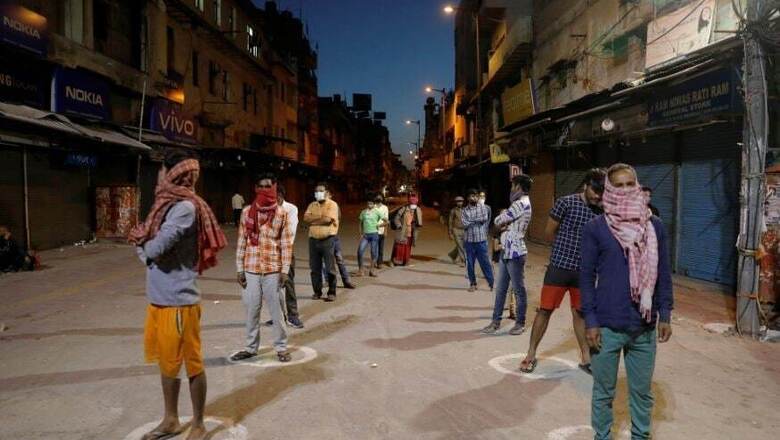
views
New Delhi: Trust of the messenger and transparency in messaging is critical in dealing with global health emergency situations such as the coronavirus pandemic as behavioural changes in communities through effective communication may be the only way to restrict the spread of the pathogen in absence of a vaccine or cure.
“If you have a situation where you're not getting the information, then there's a lot of speculation that comes in, or people — you feel people are hiding information, it's easy to speculate all sorts of things that may or may not be true. So, I think, clarity and transparency are key ingredients in an emergency situation,” says Susan Kress, executive director of the Johns Hopkins Center for Communication Programs.
“If incorrect information is shared, experts need to correct the record quickly to ensure that trust is maintained,” Kress said in a podcast published earlier this week.
The pandemic, which was first registered in China late last year, has spread to other continents infecting more than 7 lakh people and killing more than 30,000.
The Indian government daily updates figures on the number of positive cases and mortality. Despite more than 1,000 active cases and signs of local transmission, the authorities have maintained that there has not been any community spread in the country.
Some countries such as South Korea and Japan have used effective communication and aggressive testing to restrict exponential rise in transmission through a protocol adopted during SARS-2003 outbreak.
Others like Italy and Britain have been relatively slow in reacting to the situation; and have had to face the brunt of a highly contagious pathogen which has killed thousands in these countries.
The situation in Italy was aggravated by a flippant response of a section of the political leadership. In the last week of February, as the figures of those testing positive with Covid-19 climbed, Beppa Sela, the Mayor of Milan, tweeted on February 27: “Italy won’t stop,” as he invited people to go out, have drinks and eat at restaurants. Some observers feel that in doing this, authorities were merely bending to the pressure of industrial houses.
Milan carries on!#gomilan#wewontstop #forzamilano#milanononsifermaVideo promoted by Unione dei Brand della Ristorazione Italiana pic.twitter.com/GxPXYwG56o— Beppe Sala (@BeppeSala) February 27, 2020
Sela later tendered an apology for the tweet. But the damage had already been done.
China has also been accused of being obstinately opaque in communicating with its people and the world about the deadly virus.
Lisa Cobb, a researcher from John Hopkins Centre on Health Crisis Communication, cites importance of right messaging in public healthcare crisis. In a paper published in 2014 on the spread of Ebola virus in western African countries, she writes, “Too little fear with lots efficacy results in apathy; too much fear with too little efficacy results in avoidance.”
In Liberia, for instance, authorities used two messages to communicate with the people. “Ebola is real! If you get it, you will die!” and “Ebola is real. Seek care and you will survive!”
The second message was found to be more effective in restricting the spread of the virus, as the first one tends to give an impression that things are beyond control. The second message, however, tells the vulnerable population that there is a chance to survive if precautions are taken.
“The sweet spot thus is symmetry, where just enough fear meets plenty of efficacy and they result in action,” Cobb writes.




















Comments
0 comment